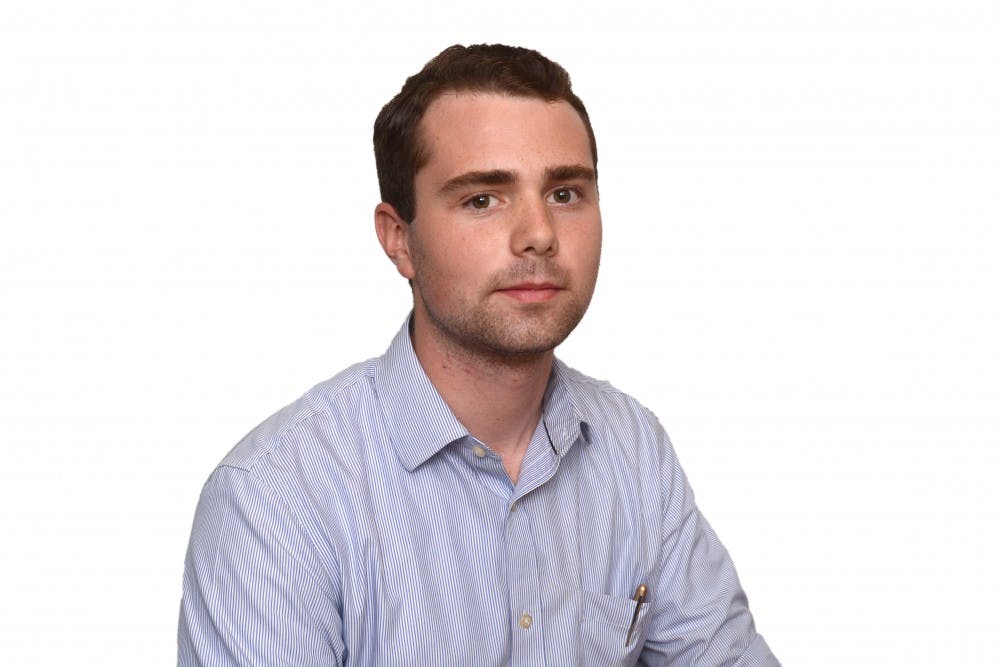At last week’s Undergraduate Assembly-sponsored panel on open expression at Penn, the most intriguing comment I heard was only tangentially related to free speech. Rather, it was an offhand musing by one of the panelists, College and Wharton junior Jennifer Knesbach, co-chair of the Penn Political Coalition and president of Penn College Republicans.
Knesbach recalled how, while wearing her College Republicans fling tank at last year’s festivities, a number of students told her, in conspiratorial tones, that they themselves were conservative, or voted Republican or were somehow right-of-center in political orientation. They’d never dream of announcing it publicly on a t-shirt, though, they confided.
Of course I knew that Republicans are a small minority on campus, but as one who rarely declines to voice an opinion, this tale of hesitancy was striking. When nationally-significant ideologies go unexpressed on campus, the learning experience is degraded as surely as it is when identity groups stay silent.
Multiple vocally conservative students I’ve spoken to have mused that they’re probably getting a better education than their left-of-center counterparts, as their views are earnestly challenged on a near-constant basis. They’re probably not wrong. There’s little else as intellectually demanding as having to defend one’s opinions from intelligent critique, and there is certainly no shortage of smart liberals at Penn. Though I consider myself a moderate, I’ve been through that ordeal more than once and without a doubt have learned a great deal from it.
And yet, I don’t feel bad for these oft-challenged conservative students. Nor, I think, do they feel bad for themselves. If I may be pardoned for employing a generalization, I think that the type of person likely to be an outspoken conservative in a mostly-liberal environment isn’t one who readily casts himself as a persecuted victim.
I do feel bad, however, for two other groups. First, the liberal students whose views and values track closely to those of the broader community. It is altogether possible that they are never forced to seriously interrogate or defend their beliefs. Any student who never gets this experience really is missing out on a valuable and profound academic opportunity. Being in the ideological minority in a seminar or discussion group can be intense, but it has a tendency to highlight the weakest links in a proposition or belief that the comfort of majority membership just doesn’t offer.
Second, the students who hold conservative views but who, for whatever reason, don’t feel comfortable expressing them publicly. Knesbach told me that she has heard students express fear of being graded down if they challenge the progressive values that they assume most of their peers and instructors hold. Perhaps such fears are founded, perhaps they aren’t, but their presence is inevitable and understandable when the ideological balance is so unequal. Not everyone wishes to be the voice of one crying out in the wilderness, but that should not deny them the chance to participate in the give-and-take that is the essence of a liberal education.
At the same time, however, it’s not necessarily a problem with an institutional solution for Penn to pursue by means of programs or initiatives, particularly since conservative ideology tends to value bootstrapping self-advancement over “governmental” assistance. Rather, in true conservative fashion, the need to close a gap should be acknowledged, and efforts by the campus conservative community to strengthen their own position should be encouraged and fostered where they can be.
An attempt is currently underway to revamp the conservative magazine, The Statesman, as a weekly newspaper for conservative voices — a goal which, if accomplished, would doubtlessly help encourage more students to openly voice their views. The University has already acknowledged the gap to some extent by granting College Republicans one of the seats on the University Council reserved for “mis- and under-represented groups,” a move which Knesbach described as an important symbolic step forward.
Even very progressive students should recognize the value of having a robust and multifaceted campus political discourse and that more needs to be done to achieve it. Those confident in the progressive worldview ought to have nothing to fear from a stronger campus conservative community if they truly believe in their ideals. The beauty of the academic sphere, as opposed to that of electoral politics, is that here our ideological opposites are not truly our opponents, but our symbiotic partners in the search for truth.
The Daily Pennsylvanian is an independent, student-run newspaper. Please consider making a donation to support the coverage that shapes the University. Your generosity ensures a future of strong journalism at Penn.
DonatePlease note All comments are eligible for publication in The Daily Pennsylvanian.





